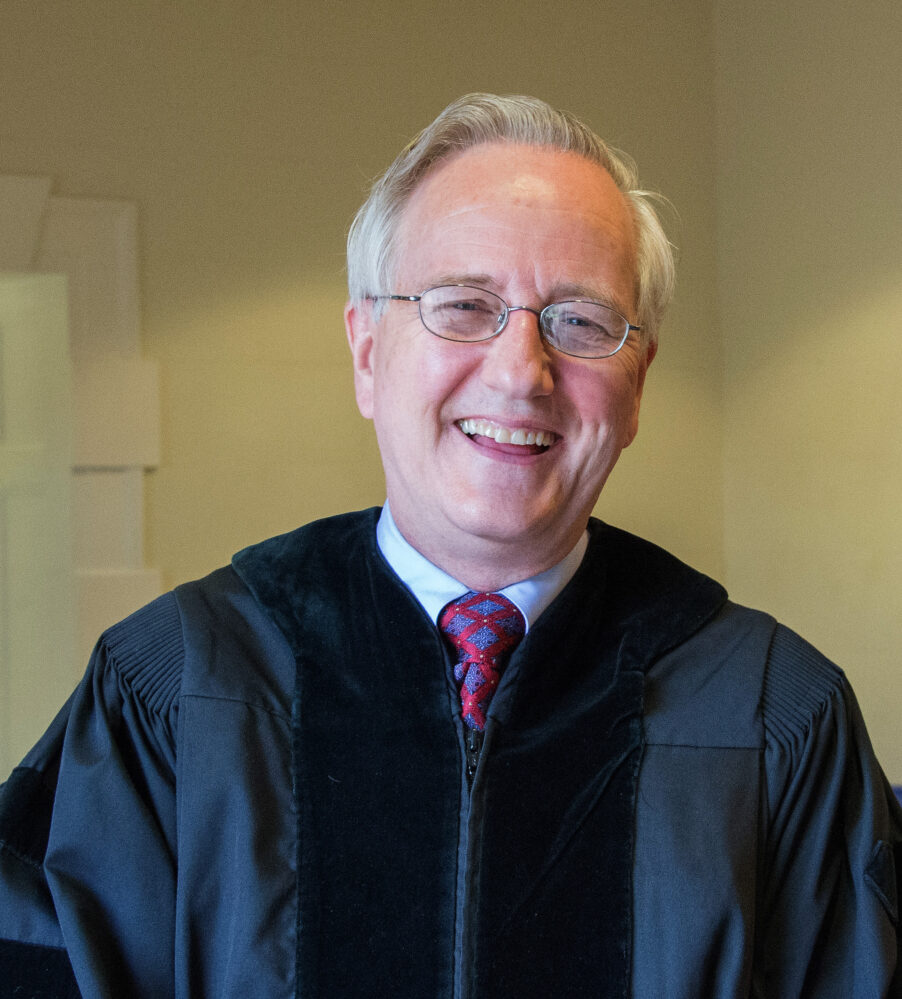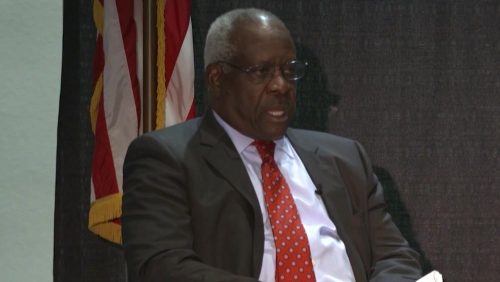Everything you know about sodomy laws is probably wrong
Many people think anti-sodomy laws were widely used to prosecute gay men before the Supreme Court declared the laws unconstitutional in the landmark 2003 Lawrence v. Texasdecision. But in reality, anti-sodomy laws were mostly used to legally prosecute heterosexual men, according to Yale Law School Professor William Eskridge.
Eskridge wrote the 2008 book Dishonorable Passions: Sodomy Laws in America, 1861-2003, and in his book, he says the Puritan-age laws were long used as a way to punish straight men for public sex and rape. While gay men were more often prosecuted under other vague laws against “lewdness” and “indecency,” Eskridge told LGBTQ Nation, anti-sodomy laws were often pointed to as theoretical proof of queer people’s immorality — and, thus, their unfitness to serve as teachers, Boy Scout leaders, and military members.
To commemorate the 20th anniversary of the Lawrence decision, Eskridge spoke with LGBTQ Nation about the history of sodomy laws, how they went from punishing straight men to punishing gay and bi men, how the Lawrence decision led to the legalization of same-sex marriage, and what would happen if the Supreme Court were ever to overturn Lawrence in the future.
This interview has been edited for clarity and length.
Your book notes that anti-sodomy laws had an impact on both heterosexual and homosexual Americans. How’s that?
Most of the sodomy laws, including the one in Georgia that was upheld and Bowers v. Hardwick (the 1986 Supreme Court decision upholding the constitutionality of a Georgia sodomy that criminalized private oral and anal sex) applied to heterosexual intercourse. So when Bill Clinton was being fellated by Monica Lewinsky in the District of Columbia, that was a felony under the District of Columbia sodomy law.
I think most sodomy prosecutions in American history were against different-sex sodomy. Yes, you might be astounded but that is a fact. The reason is, most sodomy prosecutions were against men for sodomizing women, girls, and boys…. The overwhelming majority of prosecutions were for forcible sodomy, [for] sex with animals — which was a big chunk of the 19th-century ones — and a much bigger chunk was [for] forcible intercourse with unconsenting typically under-age, let’s say under 21, boys and girls, and sometimes unconsenting intercourse with women or men.
It sounds like what you’re saying is that these sodomy prosecutions were more about punishing rape rather than non-vaginal intercourse.
That’s right. Some of the people prosecuted under those laws were indeed gay, lesbian, or homosexual. But if you were gay or lesbian or bisexual or whatnot, it was highly unlikely you were going to be arrested for sodomy because there had to be evidence of penetration. And the evidence — if it was a consenting engagement — the evidence could not be provided by the co-conspirator, in other words, the other adult man. You had to have independent evidence, which meant it had to be in public or have some other witness.
So that meant private, consensual sodomy was almost never prosecuted. If you were engaged in intercourse in public, in 90% of the cases, you would not be arrested for sodomy, but you’d be arrested for one of the other basket of offenses that the police used: indecency, disorderly conduct, lewd vagrancy, those were the main ones. They tended to be misdemeanors and tended to be situations where the police would arrest you… but most did not go to jail. They got off with a warning and public humiliation.
The actual sodomy prosecutions were overwhelmingly nonconsensual, as we would understand it, and were also in public.

What was the purpose of these laws?
Sodomy laws were a Puritan American law from the 19th-century church in colonial America. The following crimes in many of the colonies were punishable by death: fornication, adultery, sodomy or buggery, some form of indecent cohabitation, as well as incest. Almost no one was executed for this, though they were capital offenses.
The point of the laws was… the popular view is that criminal law creates moral guardrails that you should not traverse and it punishes people who are in non-conformance to these moral guardrails. But (gay, French philosopher Michel) Foucault told us that the other point of criminal laws is productive. So when you’re prohibiting fornication, adultery, sodomy, but you’re not really enforcing it, what you are producing is a norm where the only legally acceptable, moral, non-criminal sex is penile-vaginal sex within a procreative marriage.
And remember, there was no such thing as gay or anything like that in the 19th and early 20th centuries — there were people called “degenerates,” “perverts,” “inverts,” and “homosexuals.” The word “gay” was used in the subculture after World War II to some extent, but it was not used in popular culture very much until the late 1960s and early ’70s.
Now in the 20th century, the God thing is a decline, the marriage thing is in decline. The percentage of women working that are married increases steadily, and the percentage of women in the workforce increases steadily. And as women go into the workplace, they put off marriage, many of them don’t get married. They put off having children, they have fewer children on the whole, demographically.
So, if you’re a traditionalist and you’re swallowing [unmarried] cohabitation, what are you producing [with modern anti-sodomy laws]? Well, you’re producing heterosexuality.
In Texas, in 1973, they totally redid their criminal code. They eliminated most of the consensual crimes for heterosexual sodomy [both in and outside of marriage]. But they recreated it as a misdemeanor: the homosexual conduct law — only against homosexuals, and it was almost never enforced.
So it’s technically a crime, even though you’re not going to put people in jail for it. So most of the effect of these laws, whether they were called homosexual or not, was to hold up the possibility that you could be disciplined at any point if you were openly gay or lesbian… and the state could create whatever level of criminality it wanted.
You ask, “How much the state is willing to invest in undercover cops who parade around gay resting places — bars, restrooms, or tea rooms — waiting to be molested or invited?” So if it’s all the homosexuals who are taking over the neighborhood, you send in undercover cops and you can arrest a lot of them…. But if you don’t invest all that money in undercover cops, you ain’t got no crime. You might have a nuisance or neighbors complaining, etc., but you got no crime. So that’s the way it worked if the state wanted to go after sexual and gender minorities.
[The anti-gay military ban known as “Don’t Ask Don’t Tell” (DADT)] was founded on the idea that lesbian and gay soldiers are presumptive criminals. And therefore, anybody who even has a proclivity toward illegal behavior can be kicked out. What if a school teacher is found to be a lesbian in a lesbian relationship, violating the Texas homosexual conduct law? Theoretically. You don’t catch them. What do you do with her? You fire her!
You know, what happened when [President George W.] Bush fought a war [in Iraq]? When you fight a war, you need the gays. Okay, so [DADT] collapsed. I was told by someone within the Bush administration, “No, we don’t have any interest in enforcing this… We’re at war. It’s stupid.” You need the gays because they speak Arabic. The gays are heavily skilled. If you kick them all out, then you don’t got no intelligence, right?

I’ve heard it said that in order for LGBTQ+ people to win marriage and other civil rights, we first had to strike down the sodomy laws so the public wouldn’t consider us a bunch of criminals. Do you think that’s true?
I don’t think that’s the way I would put it, but I think it was an important domino…. By the time you got to Lawrence, I think there were only about 13 states that made consensual private sodomy, including oral sex, a crime that was usually a misdemeanor.
Why would some schmuck judge agree with some plaintiffs that we should overturn a conceptual sodomy law? [Because] you can win those arguments, because it’s not giving the gays any kind of special privileges, it’s just taking the government off our backs. And you could argue, you know, during [the height of the AIDS epidemic], the doctors were all saying [anti-sodomy criminalization] actually spreads AIDS. The doctors were a united front that it was bad.
The opponents of decriminalization would make sort of wild stupid claims. Like, oh, you know, “If you make them non-criminals they’ll rape children…. It’ll be the end of marriage, etc.” And of course, when you decriminalized it, none of those things ever actually happened. So you would have our side, gathering allies — some types of religious allies, sometimes conservatives, sometimes unexpected people — and the other side making ridiculous points. And then, when the world didn’t end, they look like idiots.
Nearly every single state, [soon after its legislature] decriminalized sodomy, they passed an anti-discrimination law protecting gay people. And this predicted exactly the order in which states would legalize gay marriage.
I think the progression is like a normative progression. When sodomy laws are repealed, more people will come out of the closet. And people come out of the closet as the mother of a lesbian. Then you have a PFLAG (Parents and Friends of Lesbians and Gays) you know, you build up that coalition. More people come out of the closet. And then we get another discrimination law where your job is protected. More people come out of the closet. Then companies come out of the closet, right? It’s gay support. It’s, “Hey, the gays are actually good customers! They’re good employees! They speak Arabic! They’re very handy dandy! The gays are okay! They’re okay!”
So you get more so them [coming out], and then they want to partner up. We’re no longer misfits who can’t be employed, right? But what about you know, getting married? And the straights are like, “Well, let’s compromise with civil unions. Let’s give them a euphemism.” And the gays are like, “Well, okay, but we still want marriage.” And then a lot of them get civil unions and domestic partnerships. They have children and heterosexuals like, “Wow, who, who knew?” because they didn’t know that there were gonna be lesbians with children. They’re like, “Who knew they cared for one another? Why hush my mouth, they have children, biological children! — where’d that come from?” Right? And then people were just flummoxed, and then we ultimately get Obergefell (the 2015 Supreme Court decision legalizing same-sex marriage nationwide).

What do you make of Supreme Court Justice Clarence Thomas’ suggestion that maybe the court should overturn Lawrence? Is this just something he said to excite conservatives or is something else going on?
Thomas and Alito are very devout Catholics. So Alito believes in this: Sex is procreative and it’s got to be heterosexual, and he believes this is all ordained by God. And if you really believe that’s the most important thing for a polity, then you don’t care if no one agrees with you. You say, “Well, God agrees with me,” and that’s that. So a lot of it is just that. That’s really what they believe.
It would be insane for them to overrule Lawrence vs. Texas. It would just be insane because a lot of sodomy laws would pop back. Texas has never repealed its law. Virginia has never repealed its law. So they would pop back, just like these abortion statutes [did when Roe v. Wade was overturned in June 2022].
You know, in Arizona [in 2014]… the legislature passed a statute [that would allow religious business owners to discriminate against gay people]…. It was all symbolic, you know. The Republican legislature passed it so it could rev up the base or something. And the Chamber of Commerce came down and said, “No, no, no, this is terrible.” The head of the Chamber of Commerce in Arizona — nice Republican old white guy — sits down with [then-Arizona Gov.] Jan Brewer (R) and says, “You cannot sign this piece of legislation.”
The f**king Mormon Church tells her not to sign the legislation. The Mormon legislators, a couple who have voted for the bill, said, “Oh, this was a bad idea. What was I thinking?” Because the Mormon church was now realigning…. Though they bashed the gays [by financing California’s 2008 anti-gay marriage ballot measure] Prop 8. “Oh, who is that? Not us?” [the Mormon Chuch said afterward.] “We don’t bash no gays.” … Jan Brewer — a horrible, right-wing, vicious, horrible Republican governor — vetoes this horrible statute, and then it dies. Like, no one wants to pass another statute. No, no, they won’t touch this issue anymore.
Something kind of similar happened in Arkansas, the same kind of stupid thing happened in Indiana. So you can imagine what s**t these states would take from corporations, from the gays, from women’s groups, from the ACLU (American Civil Liberties Union). The Super Bowl — Arizona was gonna lose the Super Bowl over this, and they were scared sh**less over all the repercussions. So yeah, it would be insane. It would be insane. And plus, I don’t think you’d have to have a case where someone was actually arrested under one of the sodomy laws [in order for the issue to reach the Supreme Court], I guess. So no one’s gonna do that.
But this is the most conservative Supreme Court, I think in American history, maybe since Dred Scott (the 1857 decision that declared that Black former slaves weren’t U.S. citizens). And [the current Court is] so out of touch with America on the environment, on abortion, on religion, on about anything. America’s going one way, [and the Court] is moving back in the other direction…. I’ve never seen anything like it in American history.